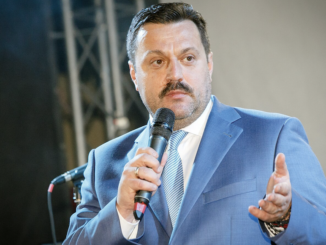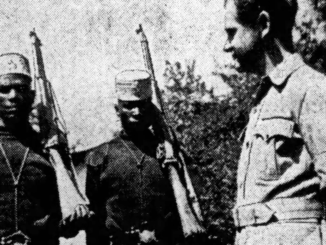
She had called him straightaway, the excitement breaking into her voice as she told him the good news. He said he would pop round when convenient for her.
“Why any time, now if you want”?
He wouldn’t want feeding; she had already gone too far out of her way. She ignored that, anything to prolong his presence… Lord she was slipping already, but she didn’t care now that her cards had been played and he hadn’t run. He had made that rash promise.
She had prepared a simple dinner, now to change, not too much though, just at home.
An hour later the door phone buzzed, she could see he was there. Just a thin brief case, nothing else, he was moving on elsewhere later, back home? Bitter disappointment, he hadn’t understood then?
Her doorbell rang. Two minutes as usual. At least he didn’t catch me on the hop this time. She opened the door. There he was, like normal, that slight smile, a little uncertain perhaps, not like normal then? Raincoat, well cut country jacket and slacks, just a country gent, in town for the day and can’t be bothered to deviate from the norm; so him. He hands her his coat and brief case, that same unnerving weight in the pocket. He reaches down behind the door and picks up a small overnight bag, warmth inside, he had meant it then. He smiled again, broader, almost a grin really, “I keep my promises, at least try to, you know. By the way there’s a small camera blind spot by the porch door, thought I should mention it.”
She squealed and threw her arms around him before he could get the door shut properly. He almost went over backwards before he could recover.
“I thought I might have frightened you off, last night, I was such a wreck, not myself…”
“I promised you. I don’t know why you bother with me really, you’re worth so much more. I worry I’m wasting your time, misleading you…”
“Don’t start that again, not unless you enjoy seeing me cry. I understand.”
Warmth now, self-confidence flooding back, I couldn’t have spoken like this to him only twenty-four hours ago.
“I laid up one of the guest rooms for you, just in case.”
She would have got down on her knees and prayed if it had occurred to her.
He followed her into the kitchen where she put the tea on, no alcohol on Sunday evenings, a little pre-work warm-up ritual.
“I can’t say how glad I am that you’re here…”
You really didn’t say that did you? You sound desperate, you’re embarrassing yourself. Don’t care, all my cards played now, and I think I won.
“I’ve been thinking, you, we, need an understanding to protect you. Will you hear me out? Please?”
Assent, a smiling compliance.
“The last thing, ever, I would want is to see you hurt in some way. You said you know what I can’t give you and that’s okay for you; right?”
Consent, slightly less happy now, but content.
“I have to come and go irregularly, no patterns, so no one remarks too loudly, can’t be here more than two nights a week. No, I don’t want a key, it’s your home. I have to travel, disappear into the undergrowth for periods, won’t always be able to tell you beforehand and certainly not why. We need to up-grade your security here, just standard form, that’s not negotiable; I will put you in touch with someone who can help. And if I ever tell you to run, just go straightaway, plan where you would go, keep a bag packed, somewhere safe until I could come for you. Do you want a firearm to keep here, just in case? I can arrange it.”
No, not yet anyway. Alarm now, he was suddenly all business, so unfamiliar again.
“That’s the deal, take it or leave it. I know I promised, but only if you listen, can live with it, for my sake if no other.”
Emotion in there again, behind the eyes, worry, for her, what he was getting her into?
“Deal.”
She stuck out her right hand and grasped his. So cheap a price for what she was getting.
“Do you want them now while I finish getting dinner ready?”
She handed him the two sticks and cd’s, he nodded, got out his laptop from the brief case and weighed them in his hands.
“They said it wasn’t much of a challenge, something about middle-eastern languages and numerals, and an old US code shared with allies that had been modified, but not very well. Don’t tell me, I don’t want to know.”
Later that night when she went to bed her tears were those of contentment. She had the best night’s sleep in a long time, he was so near.
“I’m sorry, Jovanka, I’m sorry, please forgive, please forgive me”.
Not there, that was almost the worst.
“Don’t punish me; I’m not betraying you I swear, I swore, remember…”
The consultant’s room, his composed face, her blank expression, the news, the prognosis, the pep talk of hope, developments, her young body’s strength, so much to live for… and, later that evening, her slim lithe figure had twisted around his, gripping fiercely, trying to crawl inside him, for refuge, for rescue like before, temple to temple, ear to ear, neck to neck, flesh to flesh, heart to heart. He had sworn, she had not asked, never asked, never needed to…
“What have you done in my name?”
“I’m sorry, I’m sorry, they need me, they asked me, she needs me, she asked me. I was so blind, I promised. But I swore, I remember every day, to you. Please forgive me, wait for me, don’t turn your back on me when I cross Jordan”.
MONDAY
Elaine Ferris was at work in her office at just after eight on Monday morning. With all that was going on, the terrible news from Birmingham, the endless meetings, emails and conference calls in London, she felt she owed it to the man she thought of as her boss. Six years they had been together; she had stayed with him by mutual understanding as he moved from position to position, seemingly advancing up the crooked ladder of his profession. She had got used to keeping secrets, evading questions, telling half-truths, it came with the job, as did developing a second skin that she could shed as soon as she got home at night to be with her husband.
He came in late for him, just before nine; he must have been working over the weekend and late last night, she thought; hardly surprising really, given events. He looked tired but happier than she had seen him for some time.
A breakthrough?
No, can’t be, the office gossip was of frustration, with no real progress at all.
So, unlikely then.
But the grapevine was saying that he was back seeing his on-again-off-again girlfriend, the city moneybags. She hoped he was, but no…
The after-work crowd, mainly the young ones, used to gossip salaciously about his apparent relationship, adding lurid speculation on top of wishful thinking as all juniors do about their older superiors, projecting their own hormonal preoccupations on to the blank canvases they assumed the old to be. Occasionally she would be persuaded to go along with them, have a glass of wine. She used to get quite irate about the things they said and plead the need to leave. They didn’t mean any harm, they just didn’t know him. The older colleagues rarely said anything; they knew from bitter experience how hard it was to keep love alive in this game.
Civil servant grades meant little here, it was one of the best things about this work. She had earned his, their, trust and prepared the papers, the minutes, saw his emails, had access to the internal security reviews. That was the bad thing about this place, the absolute inability to keep anything personal. They had open access to your bank accounts and financial dealings, those of your family too, reviewed your six-monthly declarations about important relationships, sometimes checked up on them too. Worst though was the feeling you never knew whether they were listening in on you, whether at home, on the phone, in the car, on-line; she had to renew the right for them to do so each year otherwise she would have to leave, and then they would probably be sufficiently suspicious to keep monitoring her anyway.
Yes, those reviews, including his own, were the worst. Some of her colleagues didn’t mind it, especially the younger ones; they almost didn’t seem to understand the need for a private life they had probably never known themselves, having grown up in the age of full confessionals on social media and television. His had told her more about him, in some ways, than working closely with him for six years, but in other respects it just didn’t get to the essence of him at all. Yes, they contained the factual record of career, background and so on, substantial relationships, finances, all the usual, but not the essence of him.
She knew it was in there, indistinct and occluded, but it was there, if largely unknown to her. Only once had she had a good glimpse; she hadn’t realised at the time, only on later reflection when her mind had calmed. She had gone into his office on a personal matter, closing the door behind her. He had smiled at her, sat her down and got her some water, saw she was wrestling with a problem. Her husband, she had croaked, the GP says he needs tests for suspected prostate trouble, his PSA test was much too high, they both knew what that meant. He needed to see a consultant but, in this overcrowded city, it could be six to eight weeks before they even put you on a waiting list and every day counted. They had little money and no private health insurance, her husband was just a parcel delivery man and she a government PA. She knew he had experience of things like this himself, what did he suggest? She had feared to reach into his past for his help, it was none of her business, but she was desperate. They were both less than ten years from retirement, their kids had left home, she was terrified of being stranded, alone.
Through her tears she had thought she saw moisture round his eyes, just for a few seconds, and then a look, a gentle smile of pure tenderness. He told her to leave it with him, not to worry, to go home straightaway, keep the phone with her. Five hours later she had taken the call. She and her husband would be picked up by chauffeured car at 9 am the following morning. Take some overnight things, just in case. They would be taken to a consultant on Harley Street and a room would be arranged at a nearby hospital if needed. No, he didn’t need their money. It was all arranged, including payment.
Later, when leaving the hospital after the first course of treatment she had asked one of the administrators who had paid, if it were him. No, they had said, it was a woman he apparently knew, but she wouldn’t say who. She had tried to speak to him about it afterwards, so had her husband. He just brushed it aside with a joke about owing her for being such a terrible boss all these years. They had never talked of it again. So yes, sometimes when they gossiped about him like that, she could quite easily have killed them.
She got him a cup of coffee, asked if there were anything he needed. He wasn’t in the mood for small talk she could see, no enquiries about her weekend.
Hardly surprising.
She left him going through the reports and status updates, the paraphernalia of modern organisational life. She smiled to herself; this was unlike any organisation she had ever come across and not just because of its secretive nature. Once, when bewildered by its latest shift in structure and remit, his latest change of role, she had asked him about it, what it meant. She didn’t even know who their head was, whether there even was one. He had tried to explain it to her: that the threats they were trying to combat were like viruses, ever changing, adapting to counter-measures, inherently flexible and self-replicating, passing themselves off as other non-threatening things to gain entry inside their prey and then eat it alive from the inside, growing at the host’s expense, like parasites. It needed a different kind of organisation to deal with such things.
The old organisations, MI5 and the like were institutionalised by their history, good people for the most part. doing good work, but the politicians had wanted to meddle, calling it ‘oversight’, which meant more structure, bureaucracy, rigidity, the opposite of what was needed to fight the new threats. So, parts of them had burrowed much deeper, out of sight, blended with some of the others and with the fossils of the more autonomous bodies still clinging on, almost forgotten after their hey-days between the forties and eighties.
From above they just seemed to be obscure sub-departments of other organisations and agencies, theoretically at least they might still be, but in reality they were fully independent. They had no settled structures or remits, no single leader, it was more a meeting of minds of key people, resembling if anything the medieval Hanseatics, possessing no constitutions or established obligations, just shared goals and resources when needed. He had smiled at the analogy. She would look it up she said, it might help understanding.
Their funding was untraceable, no direct grants. Even the Treasury didn’t have a clue, government office rents and service charges to supposedly private landlords were one of the staple incomes, but there were others. They were flexible. They chose who to suspect, what to investigate, internal and external. They believed if you had the right people, the rest looked after itself; most seemed to be ex-military, some from the other services, others were one-offs, the strays, spotted by someone and now a colleague. So, they burrowed away, inside and alongside the others. They were small, difficult to identify, harder to quantify. He had asked if she were comfortable with this. She had said she thought she understood some of it, but she trusted him with the rest. He replied that he hadn’t doubted her for a minute.
© 1642again 2018



